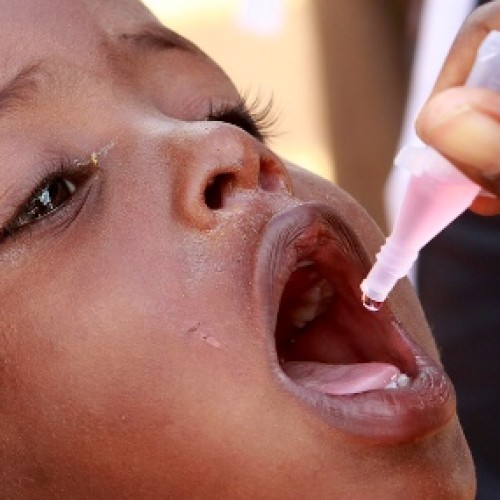Cancer: Why women need to embrace healthy habits, early detection – Oncology
A Senior Registrar at the Department of Radiation Oncology, Lagos University Teaching Hospital (LUTH), Dr Victor Isibor, has charged women to desist from harmful behaviours like smoking, excessive alcohol intake and risky sexual behaviors like having multiple sexual partners among others to avoid coming down with cancer.
Isibor said that the above listed factors are just a few of many that can cause damages to a person’s genetics or DNA which eventually leads to cancers forming in the body.
Speaking during a cancer awareness campaign organised by The NSIA-LUTH Cancer Centre, NLCC, in partnership with the State Ministry of Education, at Ojota Jnr/Snr Secondary School, Lagos, Dr. Isibor said cancer is essentially, a genetic disease, noting that the DNA structure in the body determines everything about one’s body.
“The DNA determines complexion; how tall one will be and how susceptible one could be to some diseases. So, when people have damaged DNA, or if developmental issues arise in the formation of the DNA in the womb, cancers can form even in young children. This is because the damaged DNA causes faulty development of proteins, tissues and organs at the end of the day.
“So, each organ should function in a particular way. It should begin to increase in size and function appropriately from birth. When tissues undergo uncontrolled growth that is not functional (useless) it could be a cancer.
“So, it is faulty or damaged DNA that leads to cancers in children and some children are born sometimes with that faulty DNA from the womb,” he said.
He explained further, “Sometimes, some of the things that the mothers are exposed to in pregnancy, like smoking or exposure to radiation, especially in the first trimester of pregnancy or a mother who is exposed to some drugs like DES are the reasons their children are born with cancers.
“The drug (DES) is not used commonly but women who are exposed to it with babies in the womb eventually, when the babies come out, they can develop some of these cancers like cervical cancer.”
Stressing the need for regular breast examination, he said, “All cancers, when detected early are treatable and some are even curable. So, giving people at this age of life when they are still very impressionable the skills and knowledge for which they can screen, and check themselves is very important.
“So, having this knowledge will help to raise awareness, and increase early detection of breast and cervical cancers. Early detection simplifies treatment and overall survival in the country.”
Emphasizing vaccination, he said: “Vaccination can help to protect against other malignancies like cervical and liver cancer especially. There is a vaccine against human papillomavirus, a virus which when contacted can eventually cause cervical cancer.
“So, the vaccine is available in government facilities all over the state and it’s given to children from nine years and above, at least, before the onset of sexual activity to protect against cervical cancer.
“Of course, the other types of vaccines like the vaccine against Hepatitis B virus can protect against liver cancer.
“But for men and women in Nigeria, it’s advisable to do a colonoscopy to check the intestines for cancer. Men need to do prostate screening from 50years or age or from 40 years if they have a family history of some cancers.
“In women, every month, you should have a breast examination, if you are 40 and above, do what is called a mammogram. Every year, do your pap smear or VIA to check for cervical cancer. Women also do colonoscopies.”
He restated: “No matter what the disease is, if it is detected early when the disease is small it is easier to treat, quicker to recover and cheaper to treat compared to if it increases in size and becomes a very big disease affecting other organs,” Dr. Isibor advised.






0 Comments
No Comments Yet!
You can be first to comment this post!